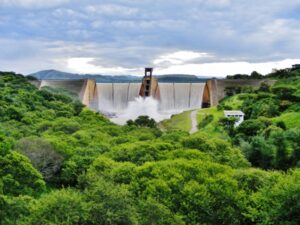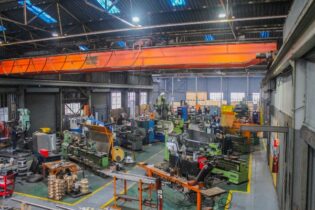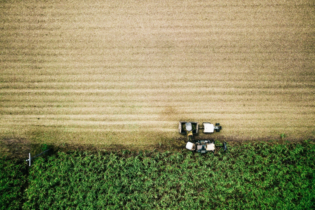The close bond between humans and water is illustrated in Maslow’s Hierarchy of Needs, where water meets the most basic of physiological needs. But despite its critical role, water is frequently overlooked and undervalued.
“This always make me think about the actions people would take when faced with the unthinkable situation where water is not coming from your tap. Communities would flock to any water source available such as water storage tanks, reservoirs and even swimming pools and when those run dry, they would move to rivers in and around cities which will likely be contaminated,” says Jan-Willem van Huyssteen, director, AECOM.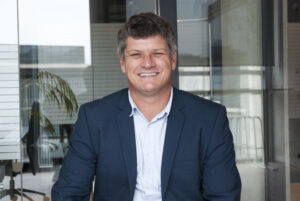
Jan-Willem van Huyssteen, director, AECOM
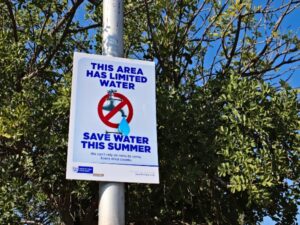 According to Jonathan Schroder – water resources technical lead for Africa, AECOM – there can be different levels of conflict within a water system. “Unfortunately, not everyone in a water system is impacted equally. We are witnessing this in areas such as Johannesburg and Durban. When reservoirs run low, the people on top of hills or further downstream are likely to experience water shortages first. There can also be conflict in a catchment area where people upstream are either polluting water or are withdrawing higher amounts of water and this negatively affects people living further downstream. Then there are catchments that cross borders where one country’s use of water in that catchment area can negatively impact on another country’s use of water. Water also often flows towards money. Projects that are deemed economically viable are regularly prioritised over projects that provide less economic benefit or appear difficult to sustain financially.” Business of water South Africa’s nonrevenue water (NRW) is rising to unsustainable levels, with nearly half the water piped through the country’s infrastructure being lost through leaks, theft or nonpayment.
According to Jonathan Schroder – water resources technical lead for Africa, AECOM – there can be different levels of conflict within a water system. “Unfortunately, not everyone in a water system is impacted equally. We are witnessing this in areas such as Johannesburg and Durban. When reservoirs run low, the people on top of hills or further downstream are likely to experience water shortages first. There can also be conflict in a catchment area where people upstream are either polluting water or are withdrawing higher amounts of water and this negatively affects people living further downstream. Then there are catchments that cross borders where one country’s use of water in that catchment area can negatively impact on another country’s use of water. Water also often flows towards money. Projects that are deemed economically viable are regularly prioritised over projects that provide less economic benefit or appear difficult to sustain financially.” Business of water South Africa’s nonrevenue water (NRW) is rising to unsustainable levels, with nearly half the water piped through the country’s infrastructure being lost through leaks, theft or nonpayment. 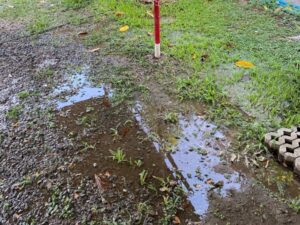 “The business of water to a large extent is broken. As noted, there are many aspects that can contribute to conflicts associated with water but if we can somehow fix the business of water a great deal of the conflicts can be resolved with more money available to solve these problems. The costs of abstraction, treatment and conveyance of water from source to tap is not being covered by revenue collected, and this results in budgetary constraints where many important new water infrastructure projects and continual infrastructure refurbishment and maintenance activities are delayed – further compounding the problem. There is insufficient working infrastructure to serve our growing population and no business is sustainable if only half of the product being produced (like clean water) is being paid for. Presently, NRW is South Africa’s biggest challenge. While there are many solutions available for alternative water sources (such as re-use and desalination), we need to go back to the basics where we conserve and manage our existing systems more effectively,” states van Huyssteen.
“The business of water to a large extent is broken. As noted, there are many aspects that can contribute to conflicts associated with water but if we can somehow fix the business of water a great deal of the conflicts can be resolved with more money available to solve these problems. The costs of abstraction, treatment and conveyance of water from source to tap is not being covered by revenue collected, and this results in budgetary constraints where many important new water infrastructure projects and continual infrastructure refurbishment and maintenance activities are delayed – further compounding the problem. There is insufficient working infrastructure to serve our growing population and no business is sustainable if only half of the product being produced (like clean water) is being paid for. Presently, NRW is South Africa’s biggest challenge. While there are many solutions available for alternative water sources (such as re-use and desalination), we need to go back to the basics where we conserve and manage our existing systems more effectively,” states van Huyssteen.
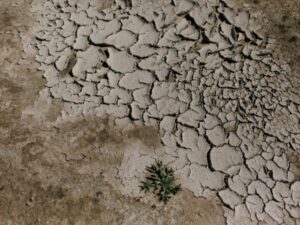 “As engineers, we are problem-solvers and one would think that we would be calling for more dams and treatment plants, but I think a good starting point would be greater public awareness and education around the business of water, sustainable water conservation and water demand management. Unlike the electricity crises where one can install some solar panels on a roof, solving lack of access to water is a more complex problem. Drilling your own borehole is a solution but groundwater is often not a sustainable source due to licencing constraints, water quality issues and lack of access to suitable ground water aquifers. Our government will remain the key provider of this service and as a general public, we can get involved in many ways to ensure sustainable water supply. Firstly we must hold our government accountable through the various political structures to ensure proper management of resources, but then also take personal responsibility to conserve water, repair leaks on our properties, report leaks on public infrastructure and most importantly, pay for our water,” he continues. Water security From a resource perspective, there is a misconception that full dams equate to water security. “These full dams exist in the context of a water scarce country where there are many instances of over abstraction. Dam levels simply tell you how much water is stored, not how long it will last. Rainfall may vary significantly from year to year, and full dams do not guarantee that we are water secure in, say, three years’ time. Consistent appropriate water conservation behaviours, continual effective water infrastructure management and prudent commitment of resources through new developments are more important to sustainable water security.”
“As engineers, we are problem-solvers and one would think that we would be calling for more dams and treatment plants, but I think a good starting point would be greater public awareness and education around the business of water, sustainable water conservation and water demand management. Unlike the electricity crises where one can install some solar panels on a roof, solving lack of access to water is a more complex problem. Drilling your own borehole is a solution but groundwater is often not a sustainable source due to licencing constraints, water quality issues and lack of access to suitable ground water aquifers. Our government will remain the key provider of this service and as a general public, we can get involved in many ways to ensure sustainable water supply. Firstly we must hold our government accountable through the various political structures to ensure proper management of resources, but then also take personal responsibility to conserve water, repair leaks on our properties, report leaks on public infrastructure and most importantly, pay for our water,” he continues. Water security From a resource perspective, there is a misconception that full dams equate to water security. “These full dams exist in the context of a water scarce country where there are many instances of over abstraction. Dam levels simply tell you how much water is stored, not how long it will last. Rainfall may vary significantly from year to year, and full dams do not guarantee that we are water secure in, say, three years’ time. Consistent appropriate water conservation behaviours, continual effective water infrastructure management and prudent commitment of resources through new developments are more important to sustainable water security.”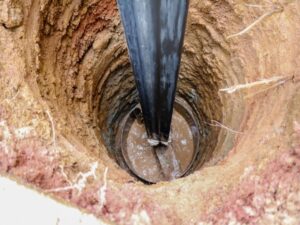 Van Huyssteen notes that even with full dams, there is not always infrastructure in place to transfer water from certain catchment areas to communities and treat it. “You may have a full glass of water, but do you have a straw to get it to your mouth? There are system constraints and system failures.” “Alternative water sources are available in the form of groundwater, desalination and water reuse. But there are complexities attached with these sources regarding high cost of treatment, location of the source in relation to the demand, and negative public perception in the case of treatment of wastewater for potable re-use. Addressing NRW and leaks remains the lowest hanging fruit to ensure water security,” he adds. AECOM has been involved with numerous projects within the African context to support clients and communities solving these problems. The company has assisted in studies with the Department of Water and Sanitation to achieve long-term water security and short-term resource allocation with an aim to guide role-players in cooperative governance. It encompasses strategies for reconciliation, implementing interventions and delineating roles and responsibilities within the water sector to ensure long-term sustainable water supply for all users within a system or catchment area. They have also assisted government clients in the development of new infrastructure and refurbishment of existing infrastructure to support water supply. They have also assisted commercial, industrial and mining clients to optimise their water usage, looking at alternative water supply solutions and advising on developing in areas appropriate for long term sustainable water supply.
Van Huyssteen notes that even with full dams, there is not always infrastructure in place to transfer water from certain catchment areas to communities and treat it. “You may have a full glass of water, but do you have a straw to get it to your mouth? There are system constraints and system failures.” “Alternative water sources are available in the form of groundwater, desalination and water reuse. But there are complexities attached with these sources regarding high cost of treatment, location of the source in relation to the demand, and negative public perception in the case of treatment of wastewater for potable re-use. Addressing NRW and leaks remains the lowest hanging fruit to ensure water security,” he adds. AECOM has been involved with numerous projects within the African context to support clients and communities solving these problems. The company has assisted in studies with the Department of Water and Sanitation to achieve long-term water security and short-term resource allocation with an aim to guide role-players in cooperative governance. It encompasses strategies for reconciliation, implementing interventions and delineating roles and responsibilities within the water sector to ensure long-term sustainable water supply for all users within a system or catchment area. They have also assisted government clients in the development of new infrastructure and refurbishment of existing infrastructure to support water supply. They have also assisted commercial, industrial and mining clients to optimise their water usage, looking at alternative water supply solutions and advising on developing in areas appropriate for long term sustainable water supply.

